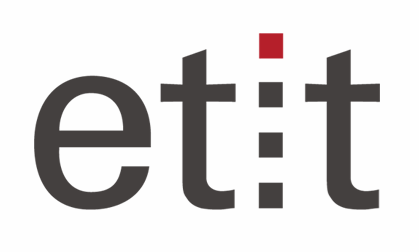Win-Win: Three Unite! Visiting Professors at etit
Guests from Aalto University Enhance Teaching and Research
2025/09/05 by Marjane Choua, sas
All three guest professors bring international expertise and decades of research experience to TU Darmstadt, aiming to familiarize students with the latest scientific developments and challenges. Dr. Maria Nazarova, Prof. Dr. Zhengmao Li, and Dr. Avleen Malhi will each contribute a dedicated course to the department’s teaching program.
Bridging Fields and Scales in Brain Stimulation and Neurorehabilitation – Dr. Maria Nazarova
The course led by internationally recognized neurologist and neuroscientist Dr. Maria Nazarova aims to foster interdisciplinary collaboration between medicine and engineering. The module focuses on how microscopic insights from neuroscience can be translated into macroscopic applications in neurorehabilitation. In a simulated learning environment, students will adopt the perspectives of both developers and medical professionals to create interdisciplinary solutions for current challenges in neurorehabilitation.
Elements of Hydrogen Systems and Storages – Prof. Dr. Zhengmao Li
Green hydrogen is a key technology for the energy transition and is increasingly integrated into multi-energy systems. Prof. Dr. Zhengmao Li, a leading expert in green hydrogen technology, will cover all essential aspects of green hydrogen production, storage, and utilization. Topics include electrolysis, methane pyrolysis, storage methods (compressed and liquefied hydrogen), and applications in fuel cells and industrial use. Special emphasis is placed on integrating green hydrogen technologies into multi-energy systems and on the role of artificial intelligence (AI) in optimizing these systems. Students will not only learn the technical fundamentals but also examine the ecological and societal impacts of hydrogen technologies.
Explainable and Ethical Artificial Intelligence for Engineering – Dr. Avleen Malhi
In the age of digital transformation, the ethics of artificial intelligence is a crucial topic. In her course, Dr. Avleen Malhi will teach both the technical foundations and ethical considerations surrounding AI. The module explores explainable AI (XAI) – the interpretability of AI decisions – and addresses ethical challenges in areas such as autonomous driving, healthcare, and smart cities. Students will be introduced to the development of AI systems that are not only powerful but also transparent and ethically responsible. The course highlights how engineers must consider societal contexts when designing intelligent systems.
An Interdisciplinary Exchange That Looks Beyond the Horizon
The Unite! Visiting Professors Program promotes cross-disciplinary networking and strengthens international collaboration. Students benefit from a practice-oriented, research-driven education that prepares them for the challenges of a globalized and technological world.
Through its interdisciplinary focus and international exchange, TU Darmstadt offers a unique learning environment where students not only gain technical knowledge but also develop an understanding of the ethical and societal issues associated with future technologies.













